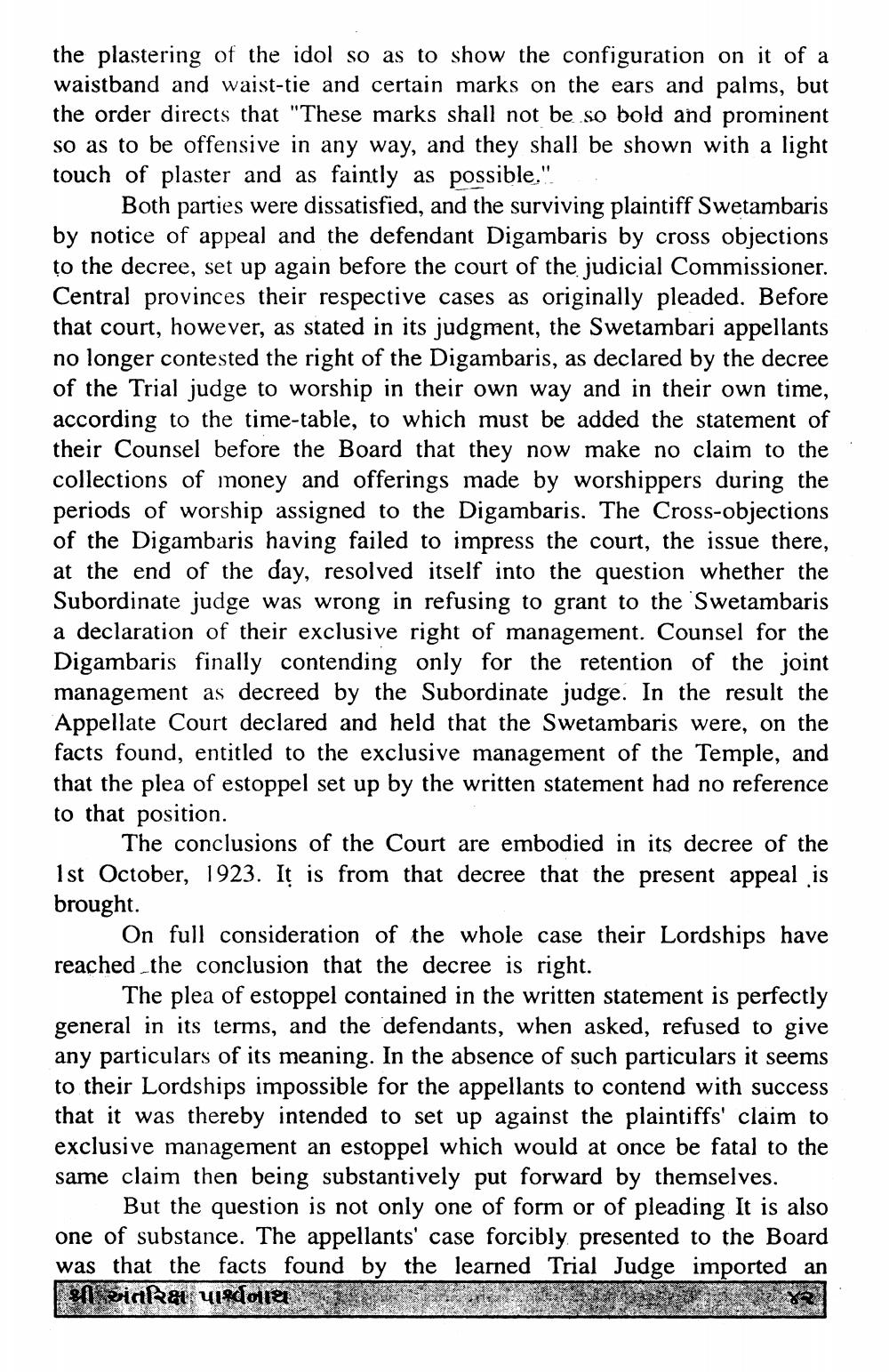________________
the plastering of the idol so as to show the configuration on it of a waistband and waist-tie and certain marks on the ears and palms, but the order directs that "These marks shall not be so bold and prominent so as to be offensive in any way, and they shall be shown with a light touch of plaster and as faintly as possible."
Both parties were dissatisfied, and the surviving plaintiff Swetambaris by notice of appeal and the defendant Digambaris by cross objections to the decree, set up again before the court of the judicial Commissioner. Central provinces their respective cases as originally pleaded. Before that court, however, as stated in its judgment, the Swetambari appellants no longer contested the right of the Digambaris, as declared by the decree of the Trial judge to worship in their own way and in their own time, according to the time-table, to which must be added the statement of their Counsel before the Board that they now make no claim to the collections of money and offerings made by worshippers during the periods of worship assigned to the Digambaris. The Cross-objections of the Digambaris having failed to impress the court, the issue there, at the end of the day, resolved itself into the question whether the Subordinate judge was wrong in refusing to grant to the Swetambaris a declaration of their exclusive right of management. Cou Digambaris finally contending only for the retention of the joint management as decreed by the Subordinate judge. In the result the Appellate Court declared and held that the Swetambaris were, on the facts found, entitled to the exclusive management of the Temple, and that the plea of estoppel set up by the written statement had no reference to that position.
The conclusions of the Court are embodied in its decree of the 1st October, 1923. It is from that decree that the present appeal is brought.
On full consideration of the whole case their Lordships have reached the conclusion that the decree is right.
The plea of estoppel contained in the written statement is perfectly general in its terms, and the defendants, when asked, refused to give any particulars of its meaning. In the absence of such particulars it seems to their Lordships impossible for the appellants to contend with success that it was thereby intended to set up against the plaintiffs' claim to exclusive management an estoppel which would at once be fatal to the same claim then being substantively put forward by themselves.
But the question is not only one of form or of pleading It is also one of substance. The appellants' case forcibly presented to the Board was that the facts found by the learned Trial Judge imported an
થી અંતરિક્ષા પાર્શ્વનાથ




